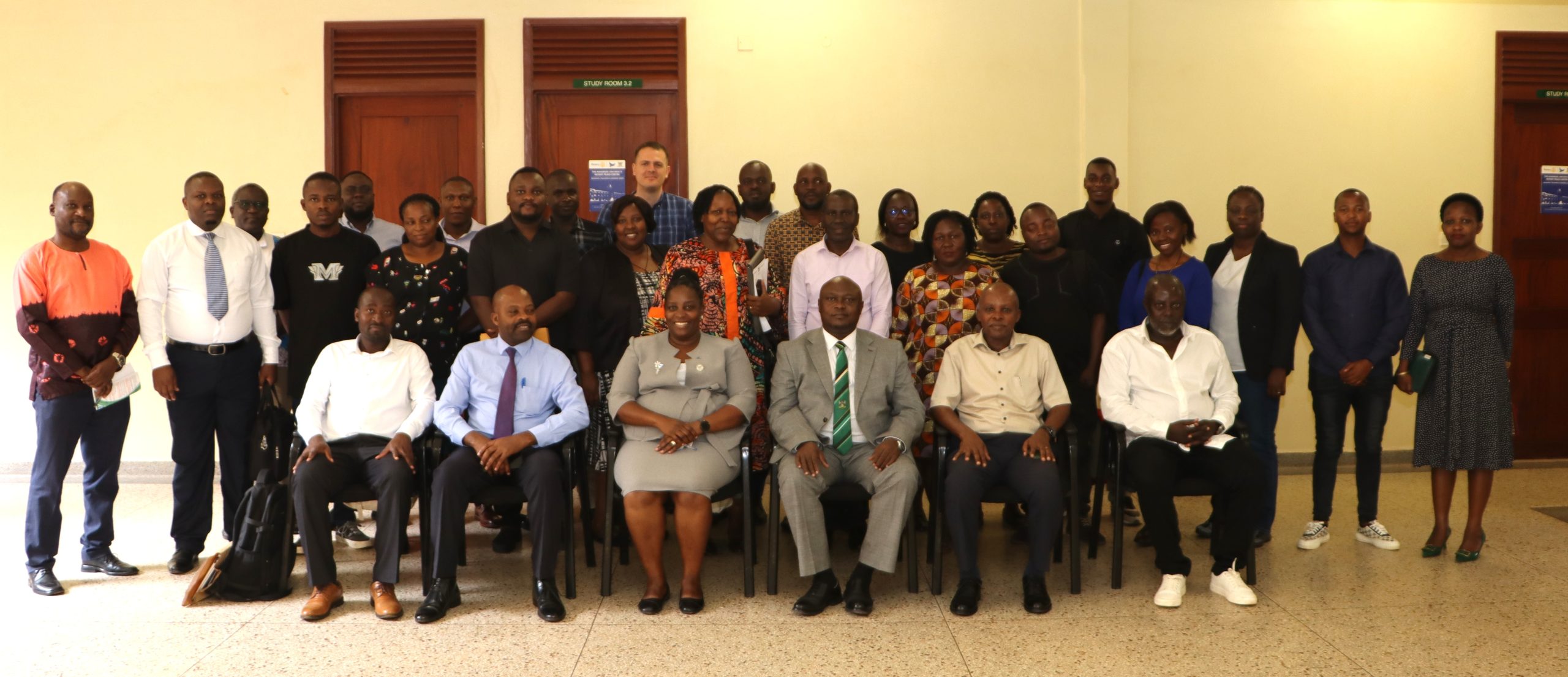Makerere University, 15 September 2025
Makerere University’s College of Humanities and Social Sciences (CHUSS) officially welcomed the 2025 cohort of CHUSS/Gerda Henkel PhD fellows at an orientation ceremony held at the Rotary Peace Centre on Monday, September 15. The diverse cohort includes scholars from Uganda, Nigeria, Zambia, Tanzania, and, for the first time, Lesotho.
The orientation brought together members of the college management, deans, heads of departments, program coordinators, and administrative staff to introduce the fellows to the university’s environment, academic expectations, and support systems.
“You Are the Future of This Scholarship”– Assoc. Prof. Helen Nkabala
In her address, CHUSS Principal Assoc. Prof. Helen Nkabala extended a heartfelt welcome to the fellows, acknowledging their exceptional merit and the responsibility their selection carries.
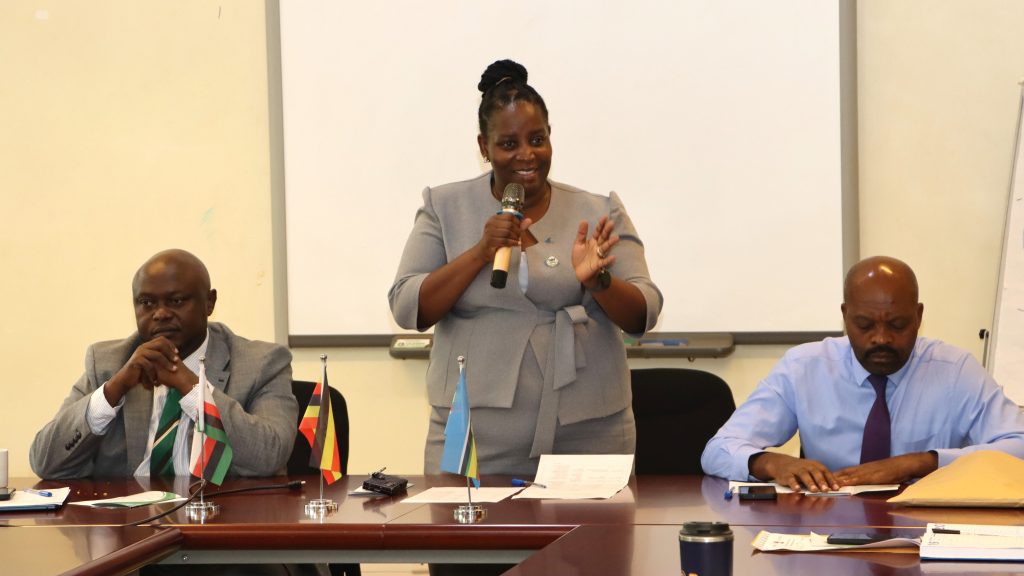
“You are here because you deserve it,” she said. “Your success means the success of this college, and more importantly, the continuation of this scholarship. The option of not making it is not available.”
Prof. Nkabala emphasized Makerere’s identity as a research-led university and lauded the fellows as “partners in the crime of research.” She urged Ugandan fellows to serve as gracious hosts to their international peers and to foster a collaborative spirit.
She also delivered a candid reminder regarding communication with funders:
“Exhaust internal mechanisms before escalating issues. Writing to funders prematurely affects the longevity of these scholarships.”
She further reminded fellows to handle their stipends responsibly and maintain discipline—both academically and socially.
“Three Years Is Shorter Than You Think”– Assoc. Prof. Eric Awich Ochen
Deputy Principal Assoc. Prof. Eric Awich Ochen emphasized the academic structures available to support PhD candidates, highlighting the roles of supervisors, doctoral committees, and the graduate school.
“You might think you have time, but you actually don’t,” he warned. “There’s a lot to do, and the clock starts now.”
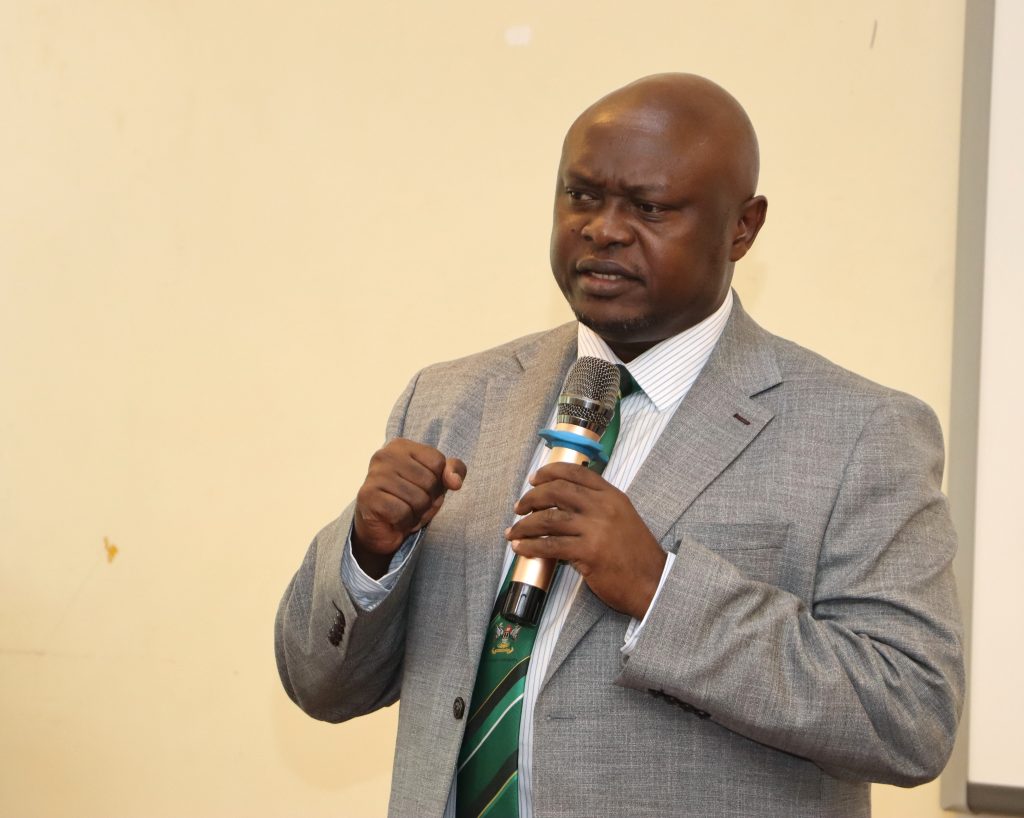
He underscored the importance of wide reading beyond one’s specialization, citing African intellectuals like Prof. Mahmood Mamdani as essential for broadening scholarly perspective.
“PhD is not just a research degree; it is about setting yourself apart in reasoning and philosophy.”
Ochen reminded fellows that at least two academic publications are required before graduation and encouraged them to begin writing early in the program.
“You Are Not the First, and You Will Not Be the Last”– Dr. Levis Mugumya
Head of the Department of Linguistics and CHUSS/Gerda Henkel coordination lead, Dr. Levis Mugumya, welcomed the new fellows and acknowledged the growing impact of the program since its inception in 2017.
“Over 200 applied this year. You were selected because you deserve it.”
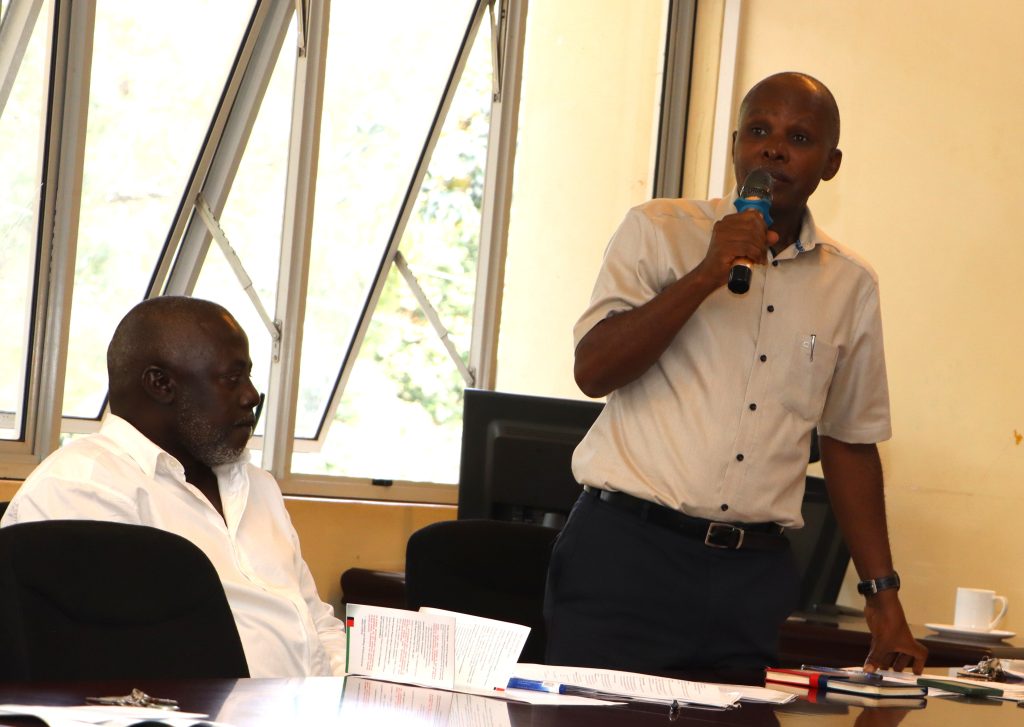
Dr. Mugumya highlighted the program’s alumni success, referencing graduates like Dr. Fatima and Dr. Sekitto, to inspire the incoming cohort. He also outlined the structured journey ahead—including introductory courses, library orientation, and proposal development—encouraging fellows to adhere closely to the almanac and the graduate handbook.
“You are full-time students. You have the support, you have the funding, now you must work hard.”
“PhD Is a Transaction—Deliver What You Promised”– Dr. Edgar Nabutanyi
Dr. Edgar Nabutanyi delivered a hard-hitting message on accountability and discipline.
“You made a cautious choice to do your PhD here. Make that choice work for you.”
He likened the PhD process to a transaction, stating: “You presented yourself as capable. Across these three years, you must live up to that claim.”
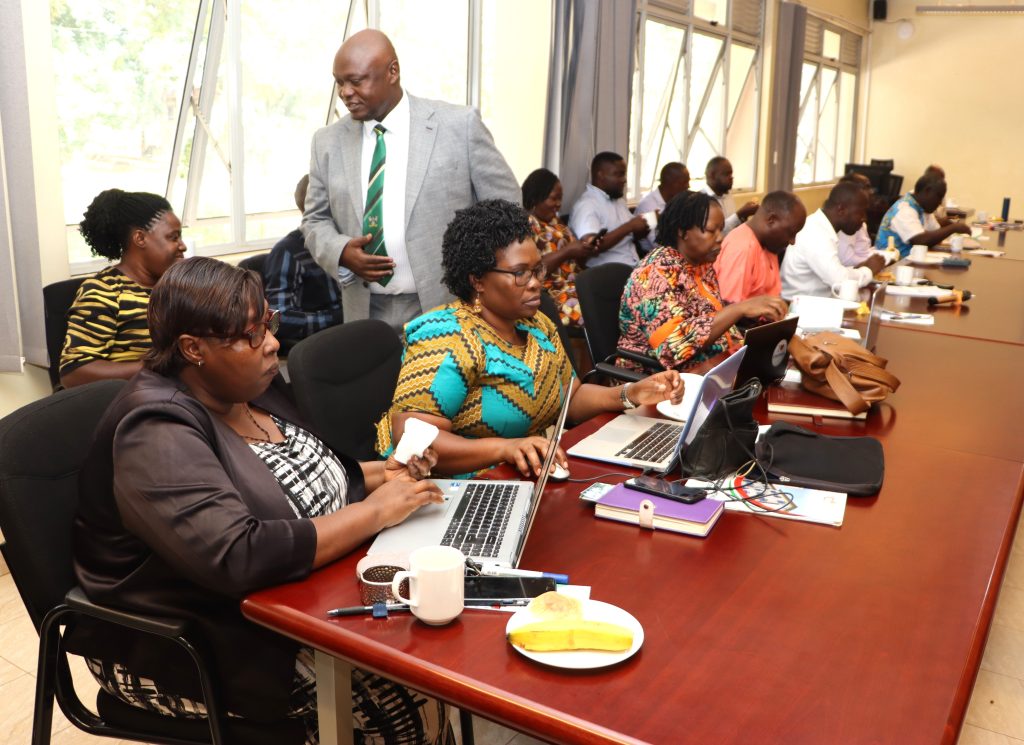
In an anecdotal analogy, Nabutanyi compared discipline to pregnancy:
“It must produce an output. You must birth a PhD thesis by the end of this journey.”
He concluded with a note of encouragement—albeit with characteristic bluntness—reminding fellows that graduation is expected by January 2029, with thesis submission due by July or August 2028.
“Registration Is the First Step in Your Academic Identity”– Mr. Vincent Abigaba
College Registrar Mr. Vincent Abigaba addressed the procedural side of the journey, emphasizing that registration transforms admission into active student status.
“Registration enables you to receive services such as supervision and coursework. It all starts with enrollment through the ACMIS portal.”
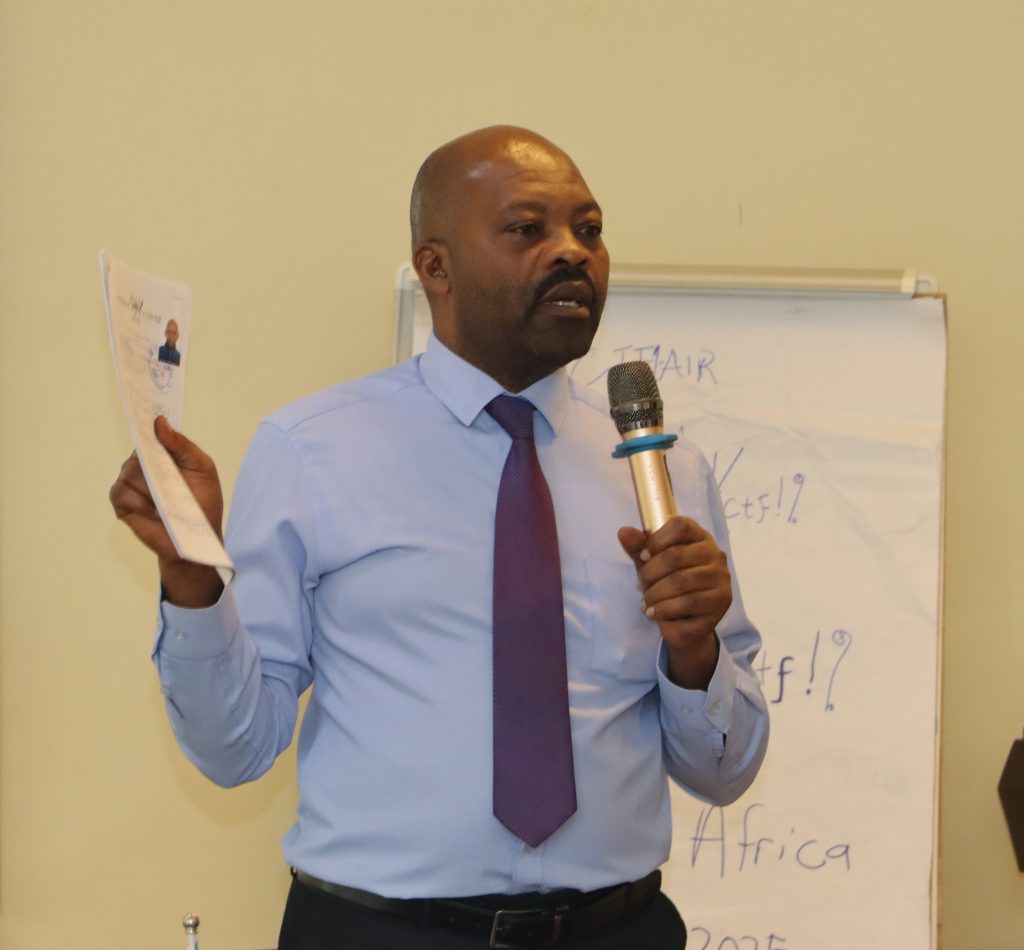
He provided hard-copy registration forms and emphasized the importance of timely registration, attaching all necessary documents.
This year’s cohort represents a growing international presence, with fellows from Uganda, Nigeria, Zambia, Tanzania, Lesotho, and Kenya. The program continues to attract diverse scholars committed to advancing humanities and social sciences research in Africa and beyond.
Next Steps: Hitting the Ground Running
The orientation marked the beginning of an intensive academic journey. Fellows will begin with introductory courses and library orientation next week. Within six months, they are expected to finalize research proposals and proceed to fieldwork and thesis writing.
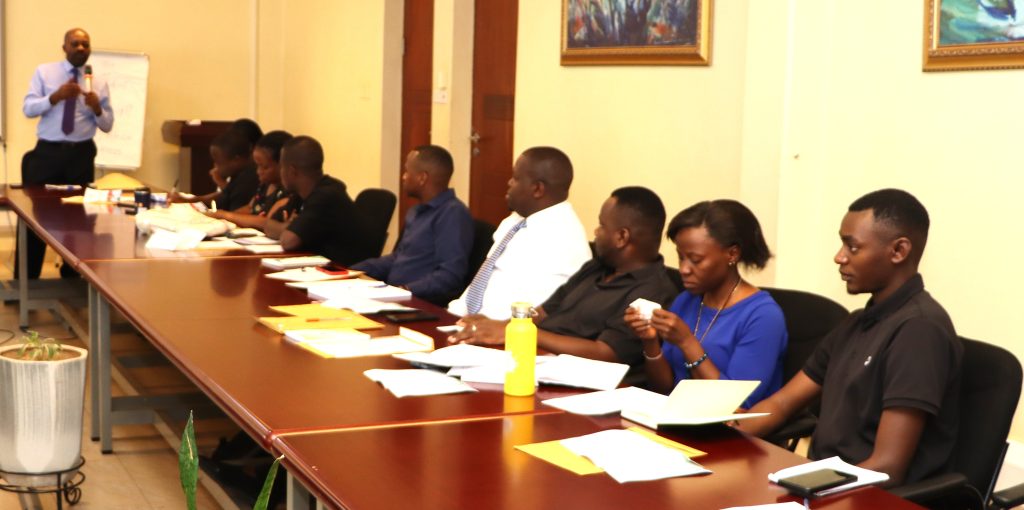
As Uganda remains one of the most hospitable and culturally rich countries in the region, the fellows were urged to immerse themselves socially and academically—but to always remember their ultimate goal: a defended thesis and a place at the 2029 graduation in Freedom Square.
About the Gerda Henkel Fellowship
With funding from the Gerda Henkel Foundation of Dusseldorf Germany, the College of Humanities and Social Sciences at Makerere University admits 10 students leading to the award of a PhD in the fields of Humanities and Social Sciences of Makerere University. Historical Humanities and Humanistic Social Sciences include but are not limited to a cluster of subjects (disciplines) that study human society with a particular sensitivity to the shifting historical contexts over time with various kinds of evidence to support analyses of what informs and shapes the changes and the implications of such changes in human society.
Preference is accorded to projects that approach the study of the Humanities and Social Sciences in the following fields: a) The Classics, namely Literature, Philosophy, Epic, and Drama, b) Prehistory/Early History of Africa c) Archaeology d) Modern African History e) Sociology f) Anthropology g) Language and Linguistics h) Creative Arts in Africa i) Religion in Africa j) Political theory k) Gender Studies among others.
The programme is fully funded by the Gerda Henkel Foundation and is tenable at Makerere University. The scholarship covers all costs of PhD training, including Tuition, Stipend, Medical insurance, Laptop computer, Books, Travel to take up the fellowship for non-Ugandan fellows, Conference attendance, and Fieldwork.

